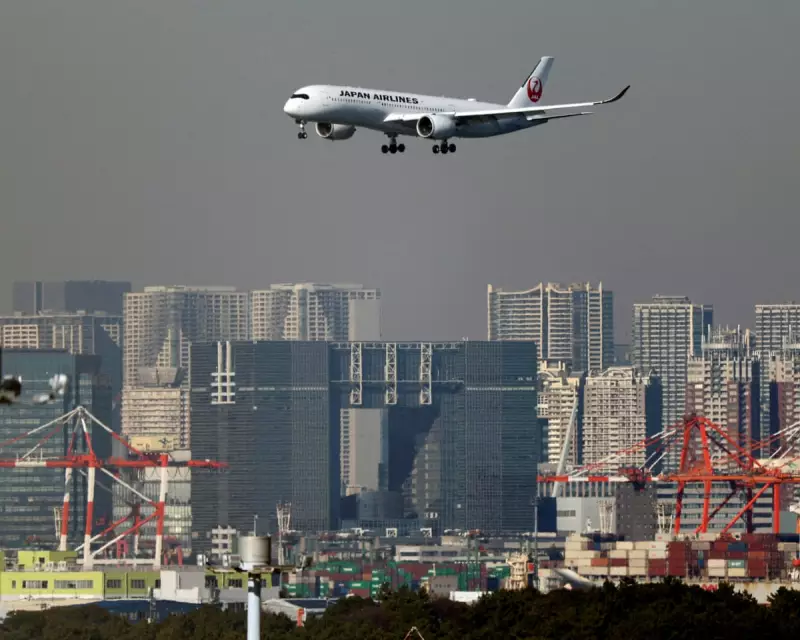
Mass Flight Cancellations Signal Deepening China-Japan Diplomatic Crisis
Chinese travellers have cancelled an estimated 500,000 flights to Japan between November 15th and 17th, marking one of the largest mass cancellations since the early days of the COVID-19 pandemic. The dramatic drop in travel bookings comes amid escalating diplomatic tensions between the two Asian powers over Japan's stance on Taiwan.
Diplomatic Fallout Over Taiwan Comments
The crisis was triggered by comments from Japan's Prime Minister Sanae Takaichi, who stated that Japan could get militarily involved if China attempted to invade Taiwan. These remarks provoked immediate fury from Beijing, which considers Taiwan part of its territory and opposes any foreign interference.
In response to Takaichi's statements, China's government issued warnings against Chinese travellers and students planning to visit Japan. At least seven Chinese airlines, including the three major state carriers, began offering free cancellations for travellers with booked flights to Japan.
Air travel analyst Hanming Li confirmed the scale of the cancellations, noting that departure data clearly indicated the massive drop in travel demand. "It is not a huge loss for airlines because the Sino-Japan market is small when comparing to the whole domestic and international market," Li told The Guardian.
Economic and Cultural Repercussions Mount
The flight cancellations represent just one aspect of growing economic countermeasures from China. Travel agencies have reportedly stopped processing individual visa applications for Chinese citizens travelling to Japan, while several local-level cultural exchange events between the two nations have been cancelled.
The entertainment industry has also felt the impact, with film distributors indefinitely postponing the screening of at least two Japanese films in China. State broadcaster CCTV claimed that box office sales for the already released Japanese animation Demon Slayer: Infinity Castle have slumped dramatically, attributing the decline to "strong dissatisfaction from Chinese audiences" with Prime Minister Takaichi.
The economic implications are significant for Japan, where China represents the second-largest source of tourists and Chinese students form the bulk of the international student population, estimated at about 120,000 last year. Shares in Japanese retail and travel companies slumped on Monday in response to the measures.
Business Community Reacts and Diplomatic Efforts Intensify
The escalating situation has alarmed Japanese business groups, with industry leaders meeting Takaichi on Monday to urge de-escalation. "Political stability is a prerequisite for economic exchange," Yoshinobu Tsutsui, chair of Japan's largest business lobby Keidanren, told reporters.
Under pressure from business groups, Japan has dispatched senior foreign ministry official Masaaki Kanai to Beijing, where he is expected to meet with his Chinese counterpart Liu Jinsong. However, Takaichi has refused to withdraw her controversial remarks, despite Beijing making this their primary demand.
The Japanese government maintains that its policy on Taiwan remains unchanged. Takaichi had argued that an attack on Taiwan could signify an existential threat to Japan, permitting it to exercise "self-defence" despite Japan's postwar constitution forbidding the use of force to settle international disputes.
Security Concerns and Regional Implications
The prospect of Japanese involvement in any Taiwan conflict is particularly alarming for Beijing due to the US-Japan security treaty, which commits both countries to defend each other if one is attacked in Japanese territory. This means Japanese involvement would almost guarantee US participation.
As tensions continue to simmer, Japan has warned its citizens in China to take extra safety precautions, advising them to avoid crowded places and exercise caution in their interactions with local people. Approximately 100,000 Japanese nationals were living in China in 2023, according to Japan's foreign ministry.
Japan's chief cabinet secretary Minoru Kihara stated that the security advice was issued in response to a surge in anti-Japanese sentiment in Chinese media coverage of the dispute. The embassy in Beijing has further advised Japanese citizens to be aware of their surroundings and avoid travelling alone, with extra caution recommended when travelling with children.
As both nations navigate this diplomatic crisis, the economic and cultural ties that have developed over years face unprecedented strain, with no immediate resolution in sight.





